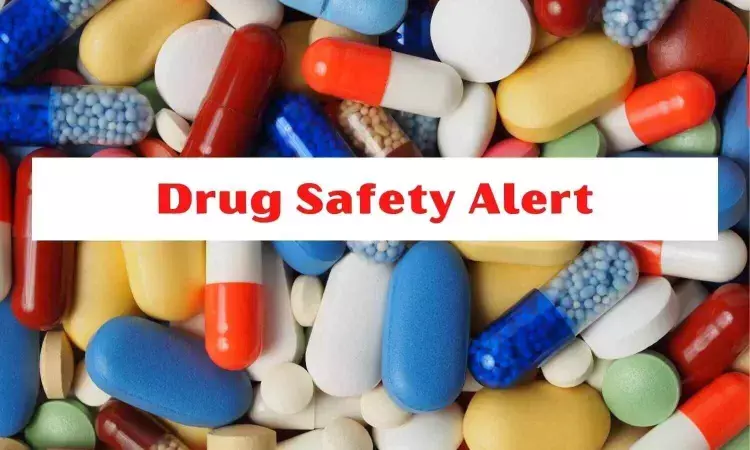- Home
- Medical news & Guidelines
- Anesthesiology
- Cardiology and CTVS
- Critical Care
- Dentistry
- Dermatology
- Diabetes and Endocrinology
- ENT
- Gastroenterology
- Medicine
- Nephrology
- Neurology
- Obstretics-Gynaecology
- Oncology
- Ophthalmology
- Orthopaedics
- Pediatrics-Neonatology
- Psychiatry
- Pulmonology
- Radiology
- Surgery
- Urology
- Laboratory Medicine
- Diet
- Nursing
- Paramedical
- Physiotherapy
- Health news
- Fact Check
- Bone Health Fact Check
- Brain Health Fact Check
- Cancer Related Fact Check
- Child Care Fact Check
- Dental and oral health fact check
- Diabetes and metabolic health fact check
- Diet and Nutrition Fact Check
- Eye and ENT Care Fact Check
- Fitness fact check
- Gut health fact check
- Heart health fact check
- Kidney health fact check
- Medical education fact check
- Men's health fact check
- Respiratory fact check
- Skin and hair care fact check
- Vaccine and Immunization fact check
- Women's health fact check
- AYUSH
- State News
- Andaman and Nicobar Islands
- Andhra Pradesh
- Arunachal Pradesh
- Assam
- Bihar
- Chandigarh
- Chattisgarh
- Dadra and Nagar Haveli
- Daman and Diu
- Delhi
- Goa
- Gujarat
- Haryana
- Himachal Pradesh
- Jammu & Kashmir
- Jharkhand
- Karnataka
- Kerala
- Ladakh
- Lakshadweep
- Madhya Pradesh
- Maharashtra
- Manipur
- Meghalaya
- Mizoram
- Nagaland
- Odisha
- Puducherry
- Punjab
- Rajasthan
- Sikkim
- Tamil Nadu
- Telangana
- Tripura
- Uttar Pradesh
- Uttrakhand
- West Bengal
- Medical Education
- Industry
Risk of Pulmonary Aspiration During Anesthesia with GLP-1 Agonists, FDA Issues New Safety Warning

Recently the U.S. Food and Drug Administration (FDA) issued updated safety warnings for all glucagon-like peptide 1 receptor agonists (GLP-1 RAs) about the risk of pulmonary aspiration during procedures that require general anesthesia or deep sedation. The updated news was published in the ‘Drug Safety-related Labeling Changes’ portal of the U.S.F.D.A website.
The medications whose safety labeling was updated include semaglutide (Ozempic, Rybelsus, Wegovy); liraglutide (Saxenda, Victoza); and the dual glucose-dependent insulinotropic polypeptide (GIP)/GLP-1 tirzepatide (Mounjaro, Zepbound). The updated product labeling included “Warnings and Precautions,” as a new subsection. This change was done as there were rare postmarketing reports of pulmonary aspiration among patients taking GLP-1 RAs who underwent elective surgeries or procedures requiring general anesthesia or deep sedation.
Despite the patients following the preoperative fasting guidelines, some of these unfortunate incidents were reported. There is insufficient data to provide specific recommendations on vindicating this risk as per the FDA. There is uncertainty on whether adjusting preoperative fasting protocols or temporarily stopping GLP-1 RA treatment could reduce the retained gastric contents and the aspiration. Evidence suggests that GLP-1 RAs may cause delayed gastric emptying, leading to the presence of residual stomach contents even after recommended fasting periods. This slower gastric motility increases the risk of complications during anesthesia, as residual contents can inadvertently enter the lungs (aspiration) when patients are under deep sedation or anesthesia.
To mitigate the risk of pulmonary aspiration, patients are now advised to inform their healthcare providers if they take any GLP-1 RAs before scheduling surgery or anesthesia procedures. In addition to this, the new warning was also added to the “Adverse Reactions” and “Postmarketing Experience” sections of the drug labels to recognize pulmonary aspiration linked to GLP-1 RAs during surgeries requiring anesthesia.
The information in the medication guide section of the drug labels has also been updated and patients are also instructed to inform the healthcare providers, especially anesthesiologists and surgeons, about their use of GLP-1 RAs before undergoing any surgical procedures.
Responsibility has also been levied on the Healthcare providers to advise and counsel the patient's risk associated with GLP-1 RAs. Information about the delaying of stomach emptying, and risks during surgery or procedures involving anesthesia should be given before prescribing these medications. So that the patients can in turn inform the healthcare providers before undergoing any procedures.
BDS, MDS
Dr.Niharika Harsha B (BDS,MDS) completed her BDS from Govt Dental College, Hyderabad and MDS from Dr.NTR University of health sciences(Now Kaloji Rao University). She has 4 years of private dental practice and worked for 2 years as Consultant Oral Radiologist at a Dental Imaging Centre in Hyderabad. She worked as Research Assistant and scientific writer in the development of Oral Anti cancer screening device with her seniors. She has a deep intriguing wish in writing highly engaging, captivating and informative medical content for a wider audience. She can be contacted at editorial@medicaldialogues.in.
Dr Kamal Kant Kohli-MBBS, DTCD- a chest specialist with more than 30 years of practice and a flair for writing clinical articles, Dr Kamal Kant Kohli joined Medical Dialogues as a Chief Editor of Medical News. Besides writing articles, as an editor, he proofreads and verifies all the medical content published on Medical Dialogues including those coming from journals, studies,medical conferences,guidelines etc. Email: drkohli@medicaldialogues.in. Contact no. 011-43720751




